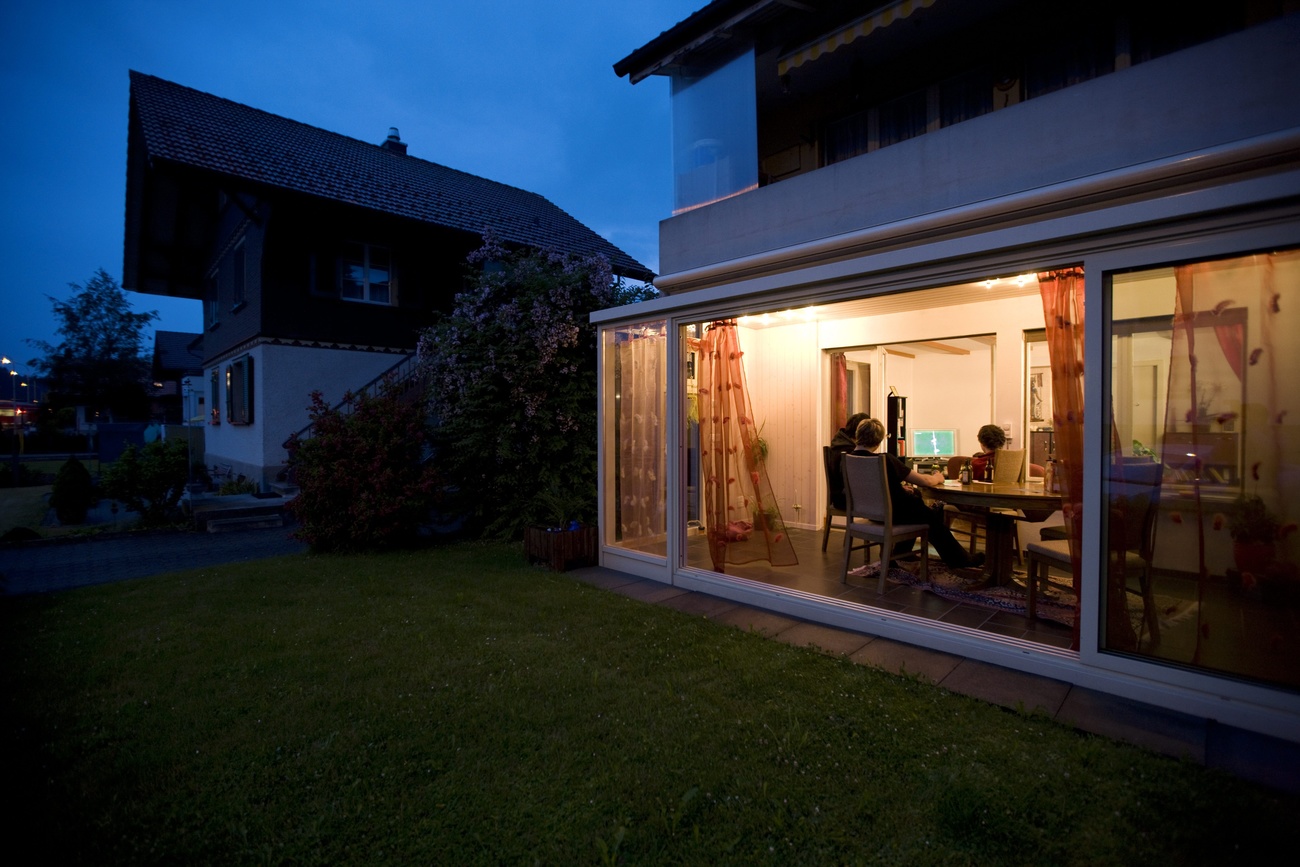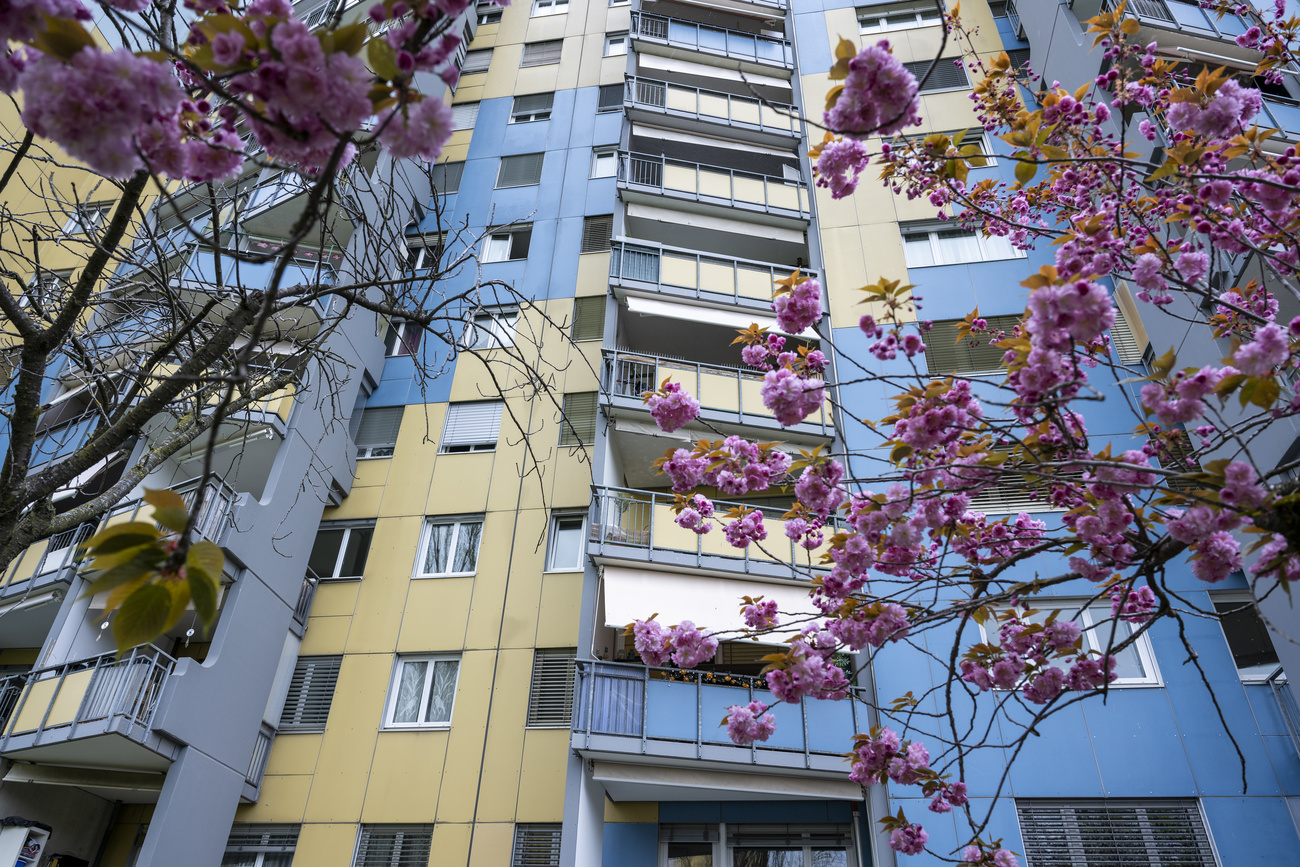Swiss tenancy wars: is perpetual conflict the answer?

Swiss landlords and tenants have just been through another bruising round of their perpetual conflict, with tenants scoring a double victory at the ballot box. Why are the two groups always at each other’s throats in Switzerland and does this constant antagonism do either side any good?
There’s no denying that Switzerland is a land of renters compared to many other countries in Europe. Nearly 60% of households rent a roof over their heads rather than taking out a mortgage loan to buy their own property.
Finding the right balance between the rights of homeowners and tenants is therefore a particularly spicy social issue in Switzerland.
+ Why wealthy Switzerland is a land of tenants
In one corner, the Tenants’ Association (Asloca) continuously complains about greedy landlords. In the other corner, the Homeowners’ Association (HEV) laments that its members have their hands tied by restrictive rules.
Bad feeling has existed for decades. Neither side ever appears totally satisfied with existing laws that cover rent increases, evictions and sub-letting.
Stalemate hinders reform
“It’s a stalemate,” said Dominik Meier, parliamentary editor for Swiss public broadcaster SRF. “For 30 years, all attempts at reform and roundtables have failed. Important issues such as the permissible return for landlords are poorly regulated, and rents are rising. Regulations are hindering housing construction and living space is becoming scarcer.”
Their issues have inevitably been picked up by political parties who have nailed their colours to the opposing groups. Left-leaning parties have opted to side with tenants, with their counterparts on the right championing homeowners.
This came to a head on Sunday when a public vote rejected two parliamentary decisions that would have made it easier for landlords to evict tenants and to curb the practice of sub-letting properties.
“It’s time to stop this trench warfare between tenants and landlords,” said Economics Minister Guy Parmelin after the vote. “Do we want to exhaust each other?”
+ Why owning a home is increasingly difficult in Switzerland
Parmelin sounded his exasperation that earlier attempts to bring the opposing sides together to find solutions had come to nothing. He once again extended an invitation for the tenants’ and homeowners’ associations to come to a better mutual understanding around a negotiation table.
Tensions worsen
The stand-off has contributed to a situation where “our tenancy law has hardly changed since 1990, while rental housing market conditions have a changed a great deal”, Parmelin added.
“Tensions are quite normal considering that landlords are interested in extracting the highest possible rents from their properties, while tenants want to pay as little as possible, or at least no more than they can afford,” Jennifer Duyne Barenstein, chief executive of the Centre for Research on Architecture, Society and the Built Environment at the federal technology institute ETH Zurich, told SWI swissinfo.ch.
“With the current shortage of affordable housing, particularly in cities, increasing real estate speculation and the large-scale demolition of affordable housing in the name of densification or energy refurbishments, tensions are naturally increasing.”

More
Golden cages and rising rates: headaches for the Swiss rental market
Duyne Barenstein’s department at ETH Zurich is currently part of a European Union research project to alleviate housing inequalities in nine European countries, including Switzerland.
Finding the right balance between the interests of landlords and tenants is a crucial aspect of a healthy rental market. Excessive protection of tenants can result in landlords leaving properties empty or failing to carry out renovations, including energy refurbishments, said Barenstein.
More affordable housing
“At the same time, the ability of landlords to terminate rental contracts for refurbishments and to substantively increase rents thereafter is very problematic and is currently one of the reasons we are facing a housing affordability crisis in many Swiss cities,” she added.
There is little sign of a thaw in relations between tenants and landlords. Asloca president Carlo Sommaruga heralded Sunday’s vote result as a rebuke to the “unbearable arrogance” of the real estate industry.
And the tenants’ association is vowing to ramp up its activity, having already launched a people’s initiative in the summer against “excessively high rents”.

More
When housing shortages sparked riots in Switzerland
Asloca says it is prepared to go to the ballot box again if parliament decides next year to increase landlord power with respect to rent increases. Parliament is expected to vote on two such rent proposals in the spring session.
Barenstein believes more affordable housing is one way to break the deadlock and ease conditions for renters. Four years ago, voters turned down a proposal to increase the supply of affordable property from 5% of the total housing stock to 10%. Duyne Barenstein thinks the time is ripe to revisit the subject.
“There is definitively a need to increase the supply of affordable non-profit housing. Currently less than 5% of the housing stock belongs to non-profit organisations, such as housing cooperatives,” she said. “Increasing the supply of non-profit housing would have both a direct and an indirect positive impact on the housing market.”
Edited by Reto Gysi von Wartburg/ts

In compliance with the JTI standards
More: SWI swissinfo.ch certified by the Journalism Trust Initiative










You can find an overview of ongoing debates with our journalists here . Please join us!
If you want to start a conversation about a topic raised in this article or want to report factual errors, email us at english@swissinfo.ch.